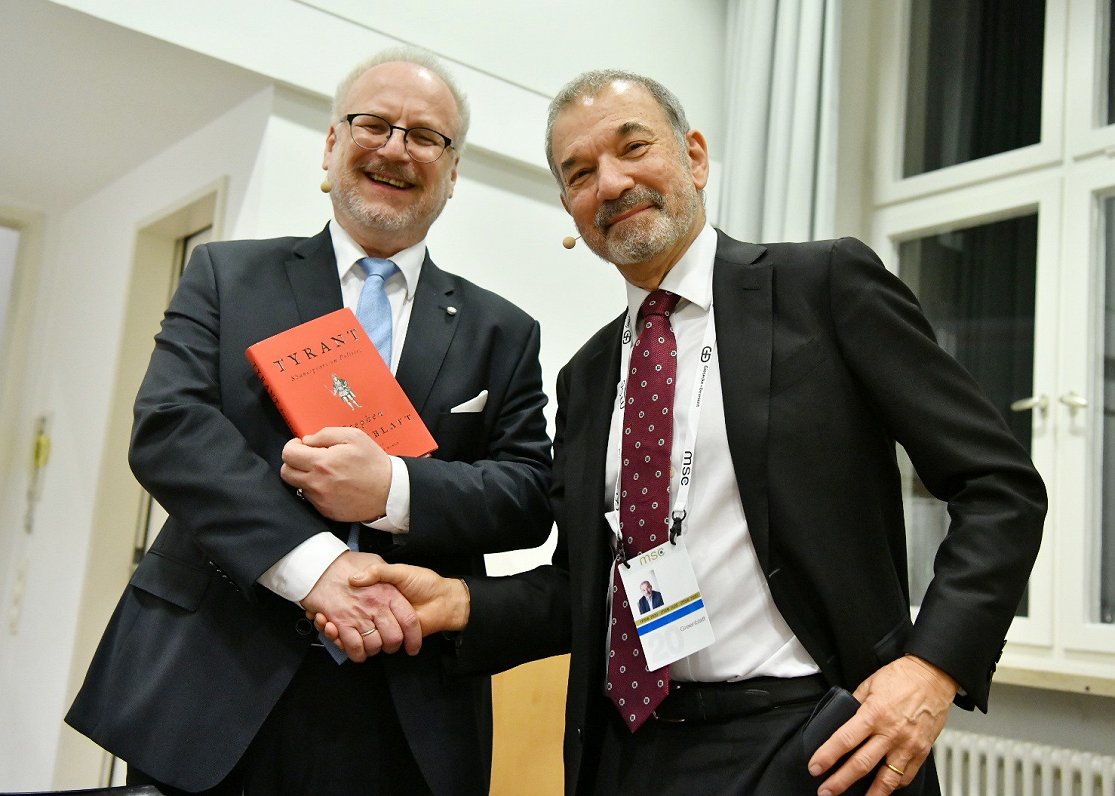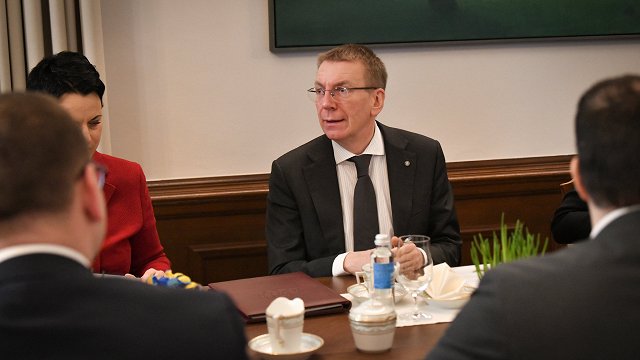Kicking off his mini-tour of Bavaria on February 13, the President delivered a lecture in German to students on "Democracy in the Digital Age" at Ludvig Maximilian University. You can watch it below.
After a philosophical and historical preamble, Levits urged students to think about the deeper meaning of free will and described how today’s internet giants build business models for processing individual data of each user via so-called user profiling. Such profiling allows them to target users with content that they ‘might prefer’, he said.
The President held several bilateral meetings at the Munich Security Conference, including with representatives from Facebook, Google and Microsoft to discuss international regulation issues in the digital world.
Later, during a discussion ‘Baltic US Military Presence: Deterrent or Provocation?’ (video below) he unsurprisingly came down squarely on the side of 'Deterrent', saying:
"Why should the clearly defensive actions of a defensive Alliance be viewed as provocative? Well, the answer may be found in history. The obsession Russia has with events 75 and even more years ago reflects the difficulty ex-colonial powers have with recognising the sovereignty of countries which they once ruled. Even for Western democracies this took time and was not easy.
"Russia’s desire to be recognised once again as a great power is also linked to its desire for historic spheres of influence. Baltic NATO membership makes this impossible. So, Russia regards NATO as a dangerous adversary on its borders, particularly if the most powerful Ally is there in force... Russia remains a long-term security challenge using a combination of old and new tactics," Levits said.
Levits goes Lit Crit
More interesting, perhaps, and certainly more original were President Levits' observations on how the works of William Shakespeare deal with themes of power and government, at another discussion on February 15 with author Stephen Greenblatt, part of a drive to get Latvia involved as a potential partner for the Frankfurt Book Fair in 2025 or 2026.
Levits was presented with a copy of Greenblatt's book "Tyrant", which hopefully is not an instruction manual before taking the classic line of interpreting "Macbeth" as a study in tyranny, the lessons of which are visible in authoritarian regimes even today.
“Each of us brings with us the course of our lives, our experiences, our impression of the environment and culture in which we have lived, and it determines our personality. However, we can trace history and determine that the psychological nature of man is unchanged through the centuries. The circumstances in which the manifestation of evil or good is manifested are changeable,” he noted, referring to Hannah Arendt's landmark study of "the banality of evil".
"Politicians need literature to better understand human nature and to make policies," said President Levits.
February 16 saw meetings with Latvian diaspora representatives before the President wrapped up his Munich itinerary, a work rate that suggests sleep shall neither night nor day hang upon his pent-house lid.




























